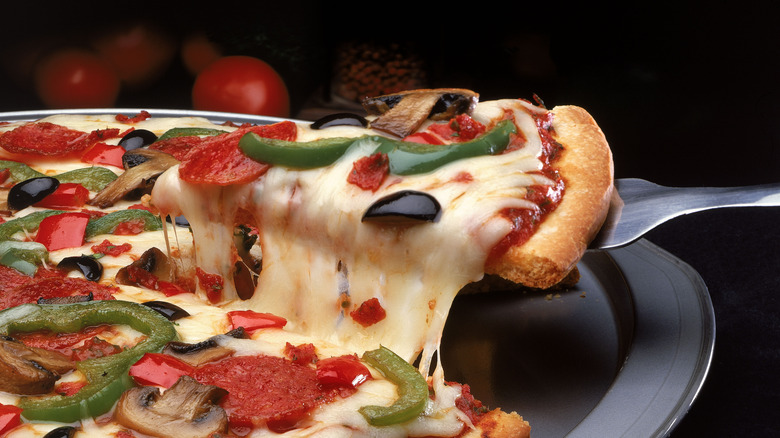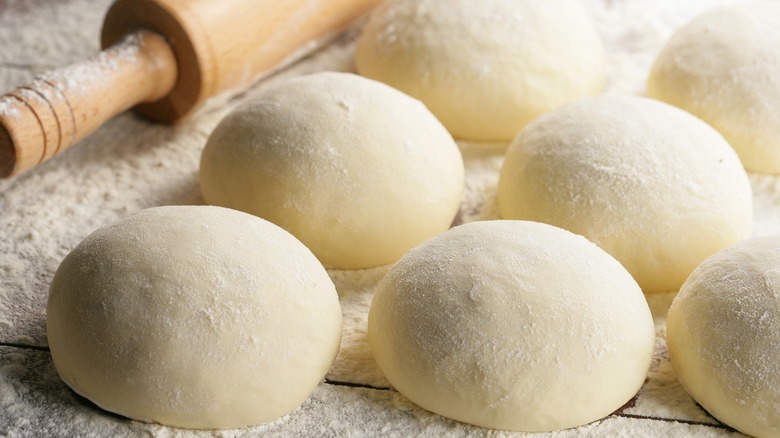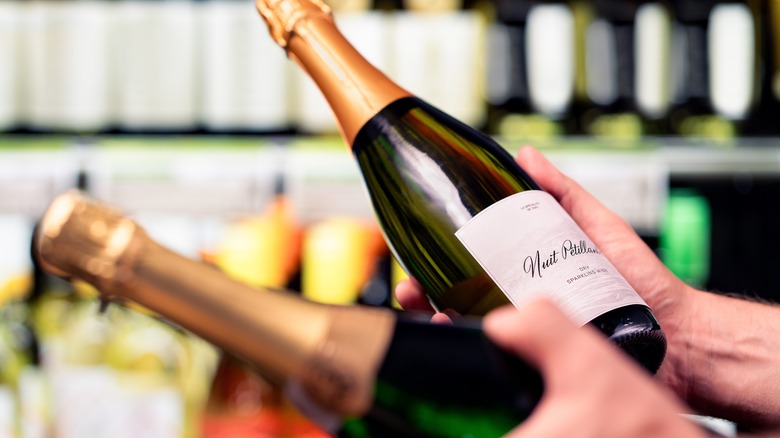For A Crispier Pizza Dough, Just Add Sparkling Wine
It's hard to keep a bottle of bubbly, well, bubbly. There are gadgets that can help preserve the carbonation in sparkling wine, but an open bottle of champagne or prosecco won't last as long as a still wine. Instead of dutifully finishing the bottle or sadly pouring out extra (formerly) sparkling wine, there's another option: Make pizza dough with it.
Champagne brings a few things to the pizza party. First, even dry wine has a little residual sugar in it for the yeast in the dough to munch on. With a bit of extra sugar in the mix, there's an improved Maillard reaction — the enzymatic process that creates browning and crisp crusts on things like bread, meat, and roasted veggies. The wine itself will impart a touch of flavor to the dough, too, leading to a slightly sweeter, more flavorful dough than your normal recipe. The bubbles from the carbonation may help too; adding a bubbly beverage can help pizza dough rise, leading to an airier crust. All in all, a little bit of champagne in your dough could be the answer to a better pizza at home.
Where did this start?
A local chain of New York City restaurants, Serafina, started offering champagne pizza in February 2024, claiming that adding the sparkling wine makes a "sweeter, lighter crust that's unlike anything you've tasted before." Chefs add two bottles of Veuve Clicquot brut champagne to a batch of dough, which Food & Wine alleges makes about 30 pizzas. For those who aren't making 30 pizzas at once at home, that's about 50 mL of wine per pizza dough — just shy of ¼ cup. Perfect for using up that last little bit of champagne in the bottle.
A couple of folks who tried Serafina's champagne pizzas said the thin-crust pizza was crispy with a dough that was yeasty and slightly sweet, but that the champagne didn't leave a noticeable taste (perfect for sharing with anyone who is not, perhaps, a big fan of champagne). Another said the cracker-like crust had a slight floral sweetness.
Does it have to be champagne?
Unless you would like an excuse to pick up a bottle of champagne — in which case, let us assure you that you should, for science — the answer is no. Any sparkling white wine can be used for this trick. Champagne is, of course, specific to a certain region in France, and can be pricier for it. The geography of wine gives it certain characteristics, and terroir is critical in winemaking and tasting, but who's to dictate what wine you should prefer or what your pizza dough should use? Cava, prosecco, or other sparkling wines can stand in for the $70 bottle of Veuve Clicquot.
Note that the residual sugar and flavors will change from Serafina's pies if you choose a different wine. The NYC pizza place uses a brut wine, and the first experiments you do at home should probably use the same dryness. That said, you could use any bubbly beverage, like beer or club soda, and play around with the differences in each bake based on the flavor, carbonation, and residual sugar in the dough based on what you choose.


